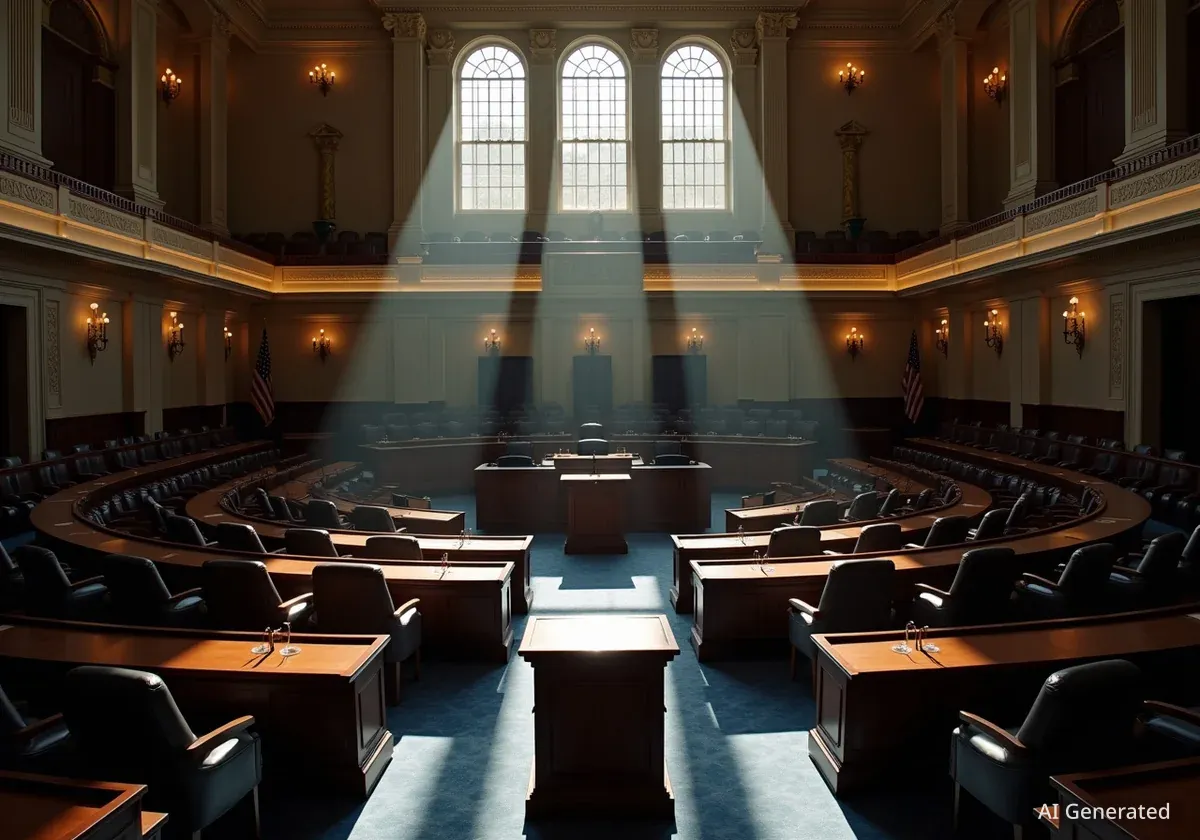The head of the Social Security Administration, Frank Bisignano, clarified his position on potential reforms Friday, stating that an increase in the retirement age is not being considered. This followed an earlier television interview where he suggested that all options were on the table to address the program's long-term financial stability.
The initial comment and subsequent rapid clarification highlight the intense political sensitivity surrounding Social Security, a critical income source for millions of American retirees. The discussion comes as lawmakers face growing pressure to address a projected funding shortfall expected within the next decade.
Key Takeaways
- Social Security Commissioner Frank Bisignano initially told Fox Business that "everything's being considered" regarding program reforms, including the retirement age.
- Hours later, the Social Security Administration issued a statement on social media platform X explicitly stating, "Raising the retirement age is not under consideration."
- The exchange occurs against the backdrop of official projections that Social Security's trust funds could be depleted by 2034 without legislative action.
- The incident underscores the political challenges of reforming entitlement programs, with both major parties vowing to protect benefits for current and future retirees.
Initial Comments Spark Concern
During a Friday morning interview on Fox Business, Commissioner Frank Bisignano was asked by host Maria Bartiromo about the possibility of increasing the full retirement age, which is currently set at 67 for those born in 1960 or later.
In response to the direct question, Bisignano stated, "I think everything’s being considered and will be considered." This remark was interpreted by many as an indication that the Trump administration was open to raising the retirement age as a potential solution to ensure the program's long-term solvency.
Bisignano did add that any proposed changes would ultimately require action from lawmakers. He noted that the Social Security trustees, a group that includes Treasury Secretary Scott Bessent and Health and Human Services Secretary Robert F. Kennedy Jr., would make recommendations, but Congress would need to approve them.
"The White House, which is completely committed to protect and preserve, and then Congress, that’s where the real work will happen. And that’ll take a while, we have plenty of time," he told Bartiromo.
Administration Issues Swift Clarification
Later on Friday, the Social Security Administration issued a formal statement on X, the platform formerly known as Twitter, to walk back the commissioner's earlier comments. The post, attributed to Bisignano, took a definitive stance against the idea of raising the retirement age.
The statement read, "Let me be clear: President Trump and I will always protect, and never cut, Social Security. That’s why we have made many vital reforms, such as cutting waste, fraud, and abuse from the program, to ensure the solvency of Social Security for future generations of Americans."
The post concluded with an unambiguous denial: "Raising the retirement age is not under consideration." The quick reversal suggests the administration's desire to avoid political fallout from any suggestion of benefit cuts, a historically contentious issue in American politics.
Social Security by the Numbers
- 67 million: Approximate number of Americans receiving Social Security benefits as of 2024.
- 2034: The year the Social Security trust funds are projected to become depleted, leading to an automatic reduction in benefits if no action is taken.
- 67 years: The current full retirement age for individuals born in 1960 or later.
The Looming Solvency Challenge
The debate over Social Security's future is driven by stark financial projections. According to the Social Security trustees' annual report, the program's combined trust funds will be unable to pay full scheduled benefits starting in 2034. At that point, ongoing tax revenue would still be sufficient to cover approximately 80% of promised benefits.
This long-term funding gap has prompted various proposals from lawmakers and policy experts. These ideas represent different approaches to either increasing revenue or reducing outlays to balance the system's finances.
Proposed Solutions and Debates
Discussions around fixing Social Security have included several distinct strategies:
- Raising the Retirement Age: Proponents argue this adjusts for increased life expectancy and would reduce the total benefits paid out over a person's lifetime.
- Increasing Payroll Taxes: This would involve raising the percentage of income that workers and employers contribute to the system.
- Adjusting the Benefit Formula: Some proposals suggest changing the formula used to calculate initial benefits or the annual cost-of-living adjustments (COLAs).
- Creating Investment Funds: A bipartisan group of senators recently proposed creating a $1.5 trillion investment fund to generate returns that could help ensure future benefits.
A Politically Sensitive Topic
Any discussion of changes to Social Security is politically fraught. In March 2024, President Trump faced criticism after telling CNBC there was "a lot you can do in terms of entitlements, in terms of cutting." This statement was quickly seized upon by political opponents as evidence of an intent to reduce benefits.
Arguments Against Raising the Retirement Age
While raising the retirement age is often presented as a straightforward mathematical solution, it faces significant opposition. Critics argue that such a change would disproportionately harm lower-income workers and those in physically demanding jobs.
Former Social Security Administration Commissioner Martin O’Malley, appointed by President Biden, voiced these concerns at a congressional hearing in March 2024. O'Malley warned against proposals to raise the age, highlighting the real-world impact on American workers.
"For those who would advocate raising the age, I think we have to be mindful of people who do hard work their whole lives, and die sooner," O’Malley stated. He emphasized that many Americans rely on the program after decades of manual labor and may not be physically able to work longer.
His comments reflect a broader argument that while average life expectancy has increased, these gains are not evenly distributed across all demographics and income levels. Therefore, a uniform increase in the retirement age could effectively be a significant benefit cut for those who need the support most.





